CXB multimedia: Explaining the cyclone warning signals
- 12/04/2022


[Updated 12 April 2022 with Communication strategy for Cyclone Preparedness]
This material explains the cyclone early warning signals being used in the camps and advice about how to prepare at each warning level. The resources are based on common messages developed by the Cox's Bazar Emergency Communication Group in collaboration with the Cyclone Preparedness Programme.
These tools are for use inside the refugee camps, where language and advice is different from the rest of Bangladesh. For tools and resources that can be used in the host community (and more widely throughout Bangladesh), please see this separate page.
COVID-19 AND CYCLONES - GUIDANCE FOR PRACTITIONERS (not for general dissemination to refugees)
- [NEW][12 April 2022] Communication strategy for Cyclone Preparedness
- Cyclone messages for different signals for inside the Rohingya camps
VIDEO
- Video animation (6'40", Rohingya language). The video explains the different levels of cyclone warning system, including the flags and the suggested steps to take at different levels of warning. Available in high resolution for projections (415 MB) or low resolution for mobile (75MB). [Updated April 2019 to reflect the changes in the flag signalling system.]
AUDIO
- [NEW for 2020] Loudspeaker announcement explaining the flag system and precautions to take (Rohingya language, 4'45")
- [NEW for 2020] Soiyi Hota programme 3 (audio programme for loudspeakers or one-to-one sharing) explaining the flag system and precautions to take (Rohingya language, 5'00")
- The first episode of the listening group programme, Aa'rar Foygam, covers cyclone preparedness, including explaining the flag warnings.
FLASHCARDS
All flashcards have been endorsed as in line with the Cyclone Preparedness Programme approach and come with guidance text (in Bangla and Burmese) to help fieldworkers use the tool.
These important cyclone preparedness messages are available as individual flash cards or as a book with all the materials in one document.
You can down load the individual flash cards and instructions on the following issues:
- Flashcard set A: overview - set of five pictoral flashcards giving an overview of the three levels of cyclone warning signal.
- Flashcard set B: 1-flag - set of five pictoral flashcards with details about the "1-flag" warning signal and advice about how to react to it.
- Flashcard set C1: 2-flag (generic) - set of 10 pictoral flashcards with details about the "2-flag" warning signal and advice about how to react to it. For use throughout the camps, except in Shamlapur.
- Flashcard set C2: 2-flag (Shamlapur only) - set of 11 pictoral flashcards with details about the "2-flag" warning signal and advice about how to react to it, including advice specific to coastal areas of Shamlapur.
- Flashcard set D: 3-flag - set of 9 pictoral flashcards with details about the "3-flag" warning signal and advice about how to react to it.
Alternatively, you can download them as a full book here (this book also includes all the flashcards and a field discussion guide on cyclone warning procedures; and is being used by the Cyclone Preparedness Programme for their sensitisation sessions in camps):
- Full book of flashcards, including discussion guides in English and Bangla and flashcards covering general preparedness, flag overview, 1-flag, 2-flag and 3-flag. (Total 150 pages, 57MB).
The Cox's Bazar Communication with Communities Working Group has also developed a discussion guide, designed to help field staff and volunteers lead participatory discussions with communities about cyclone risks. The guide is available in Bangla, Burmese and English.
OTHER RESOURCES
You may also be interested in materials about shelter strengthening and household- and community-level preparedness for cyclones, storms and monsoon weather.
These materials are part of an ongoing series of multimedia outputs being produced by BBC Media Action to enhance the range and quality of tools available to information hubs, listener groups and other community-facing information services within the Rohingya emergency response.
2019 materials were delivered in partnership with Action Against Hunger and IOM; and is funded by Global Affairs Canada, the UK Department for International Development and the US government's bureau of population, refugees and migration.
2020 materials are being delivered in partnership with Action Against Hunger and UNOPS; and are funded by EU Humanitarian Aid and the UK Department for International Development.
The Soiyi Hota programmes are supported by UNHCR.




















